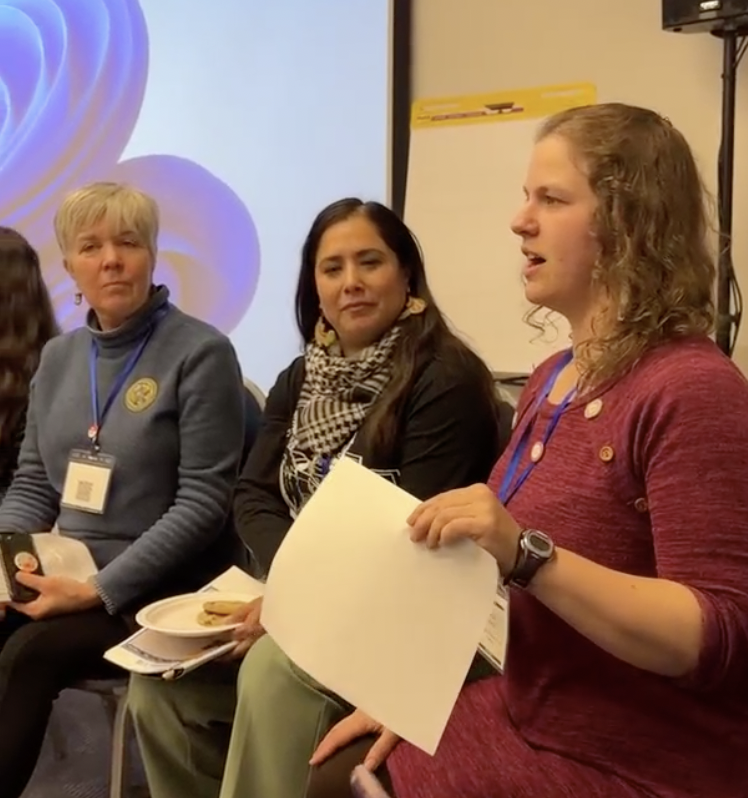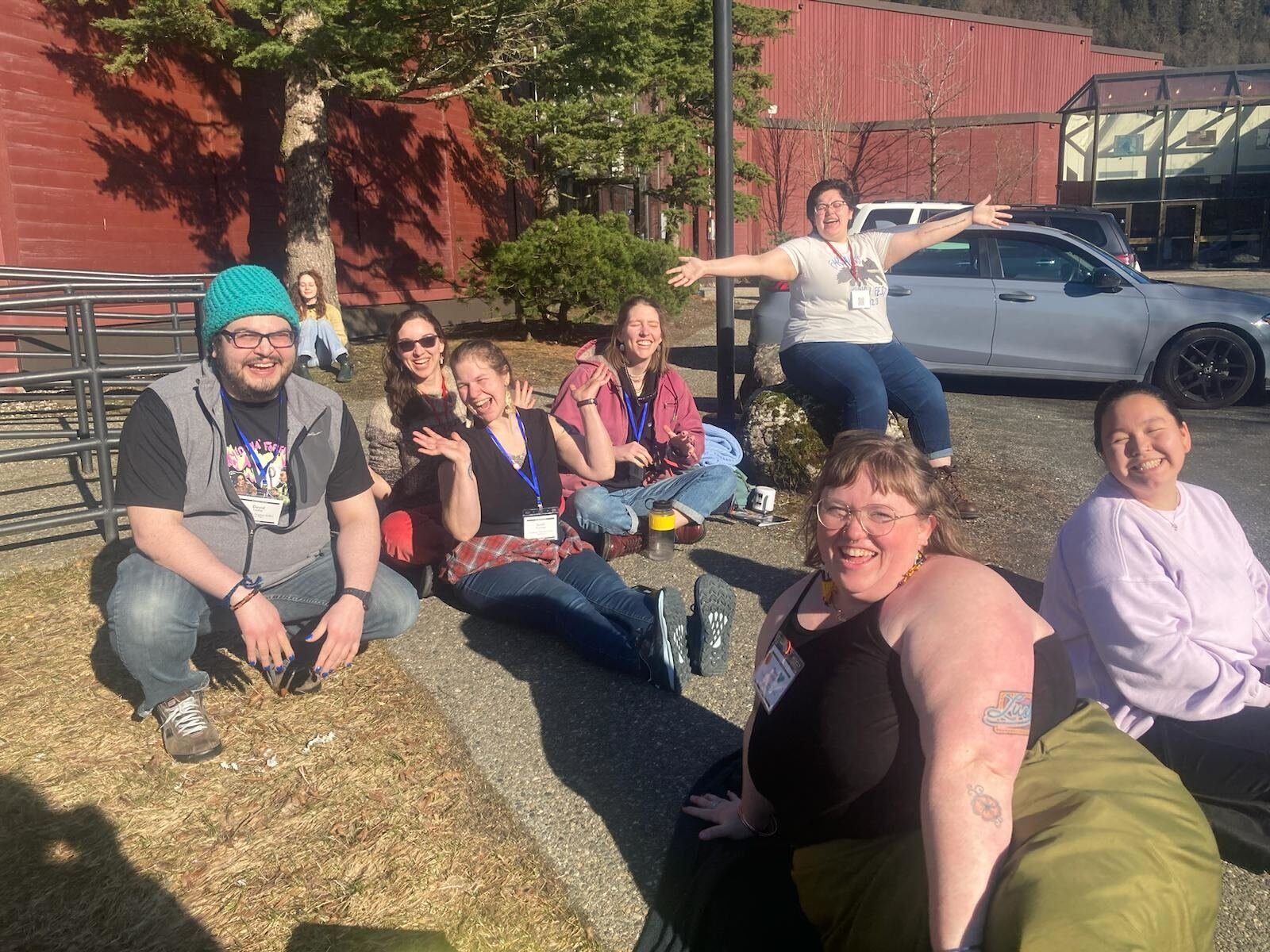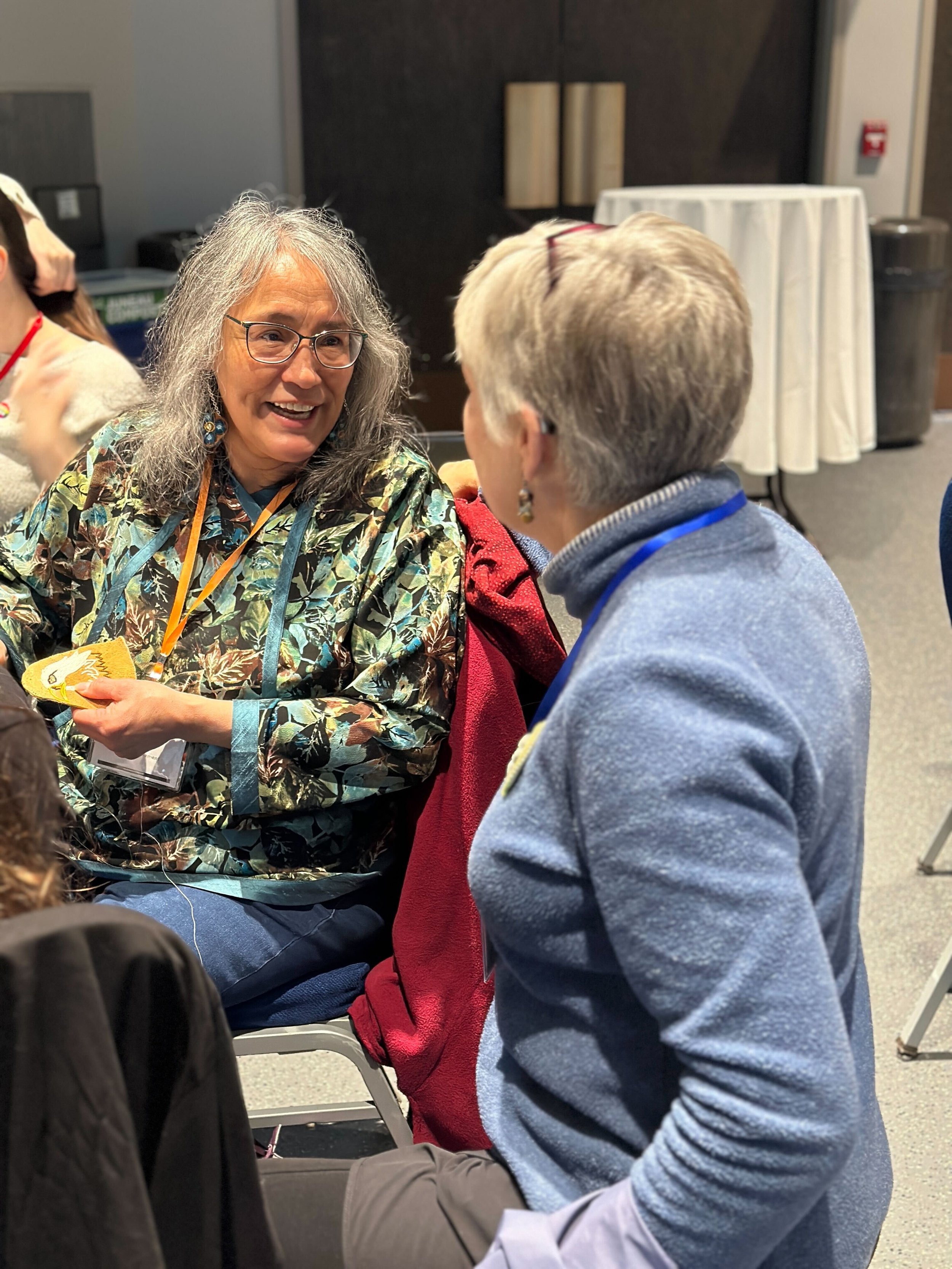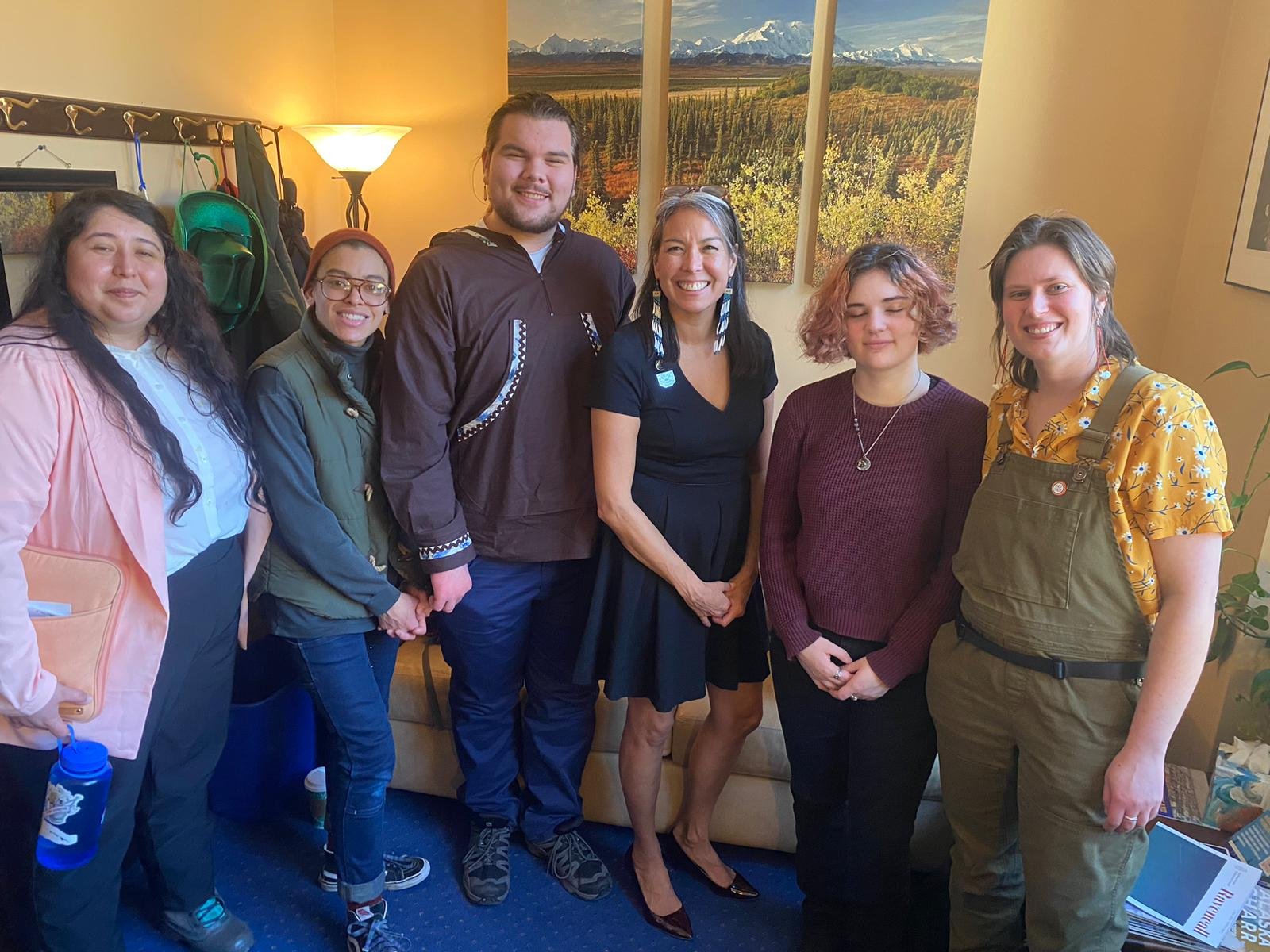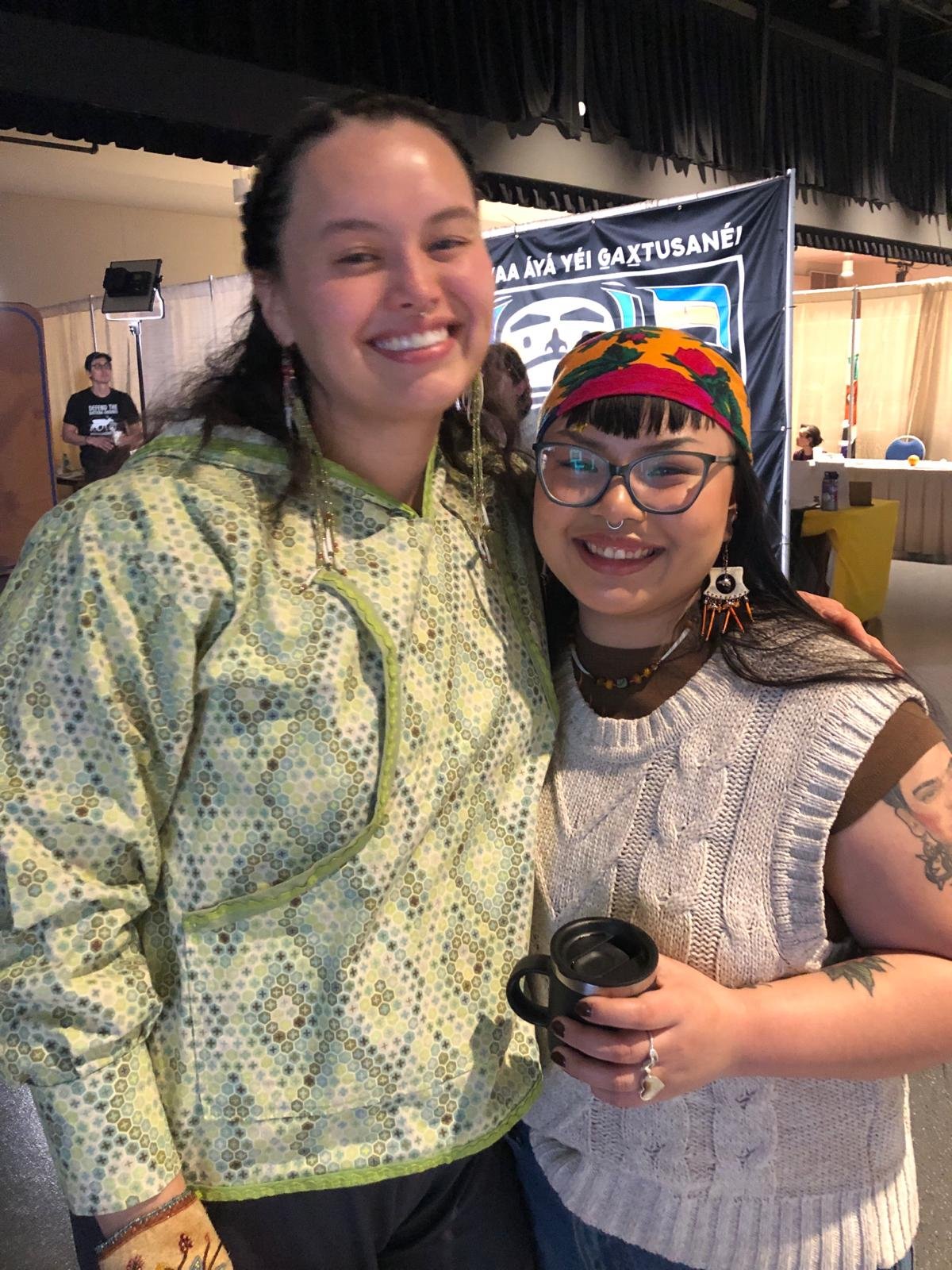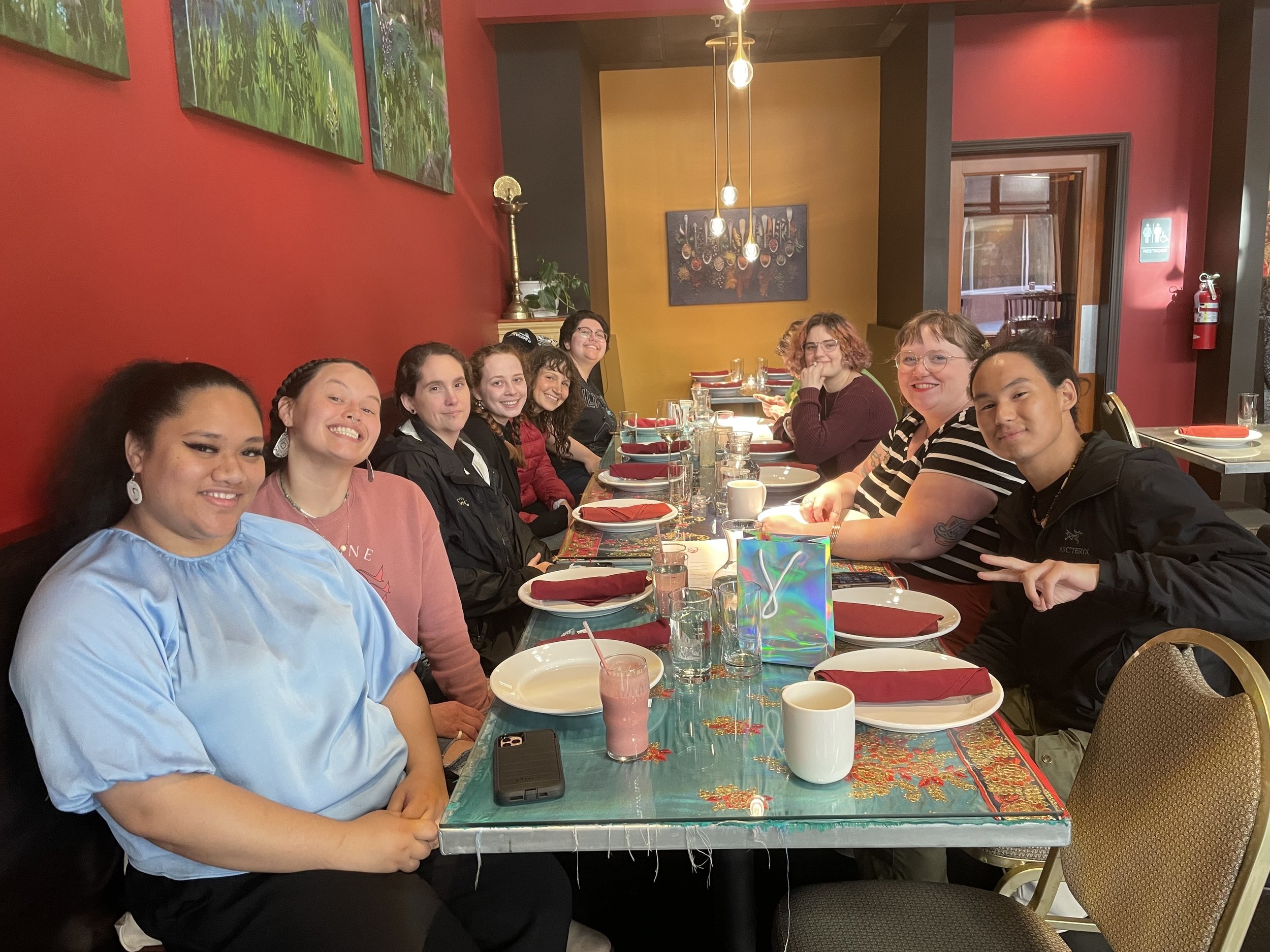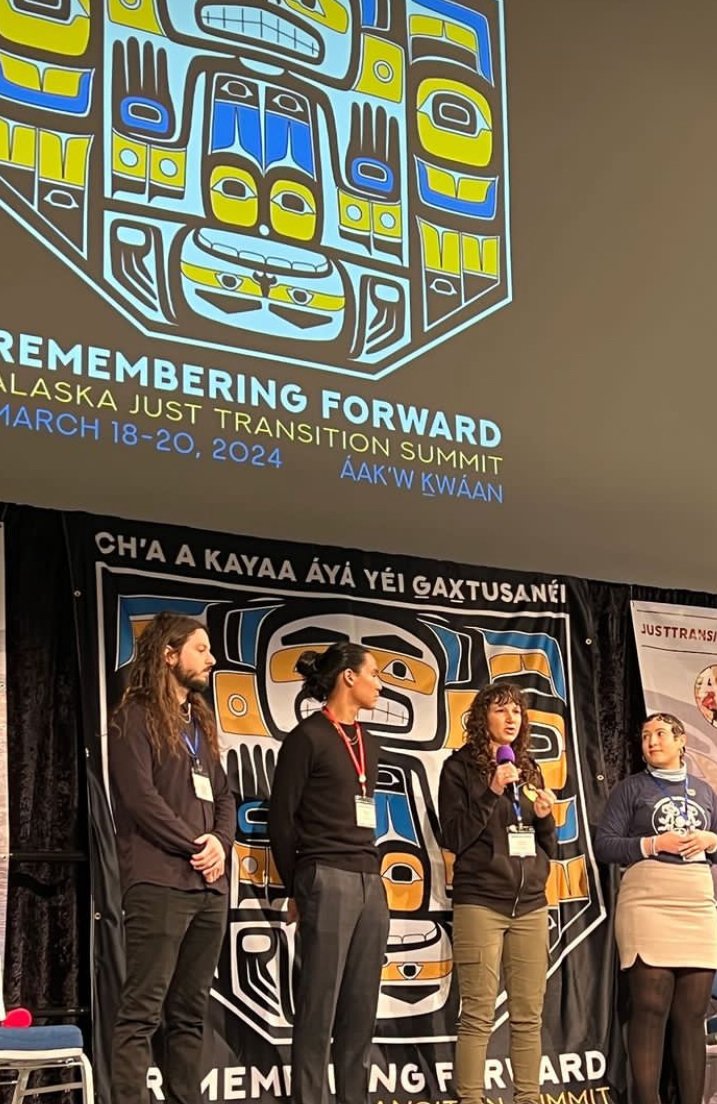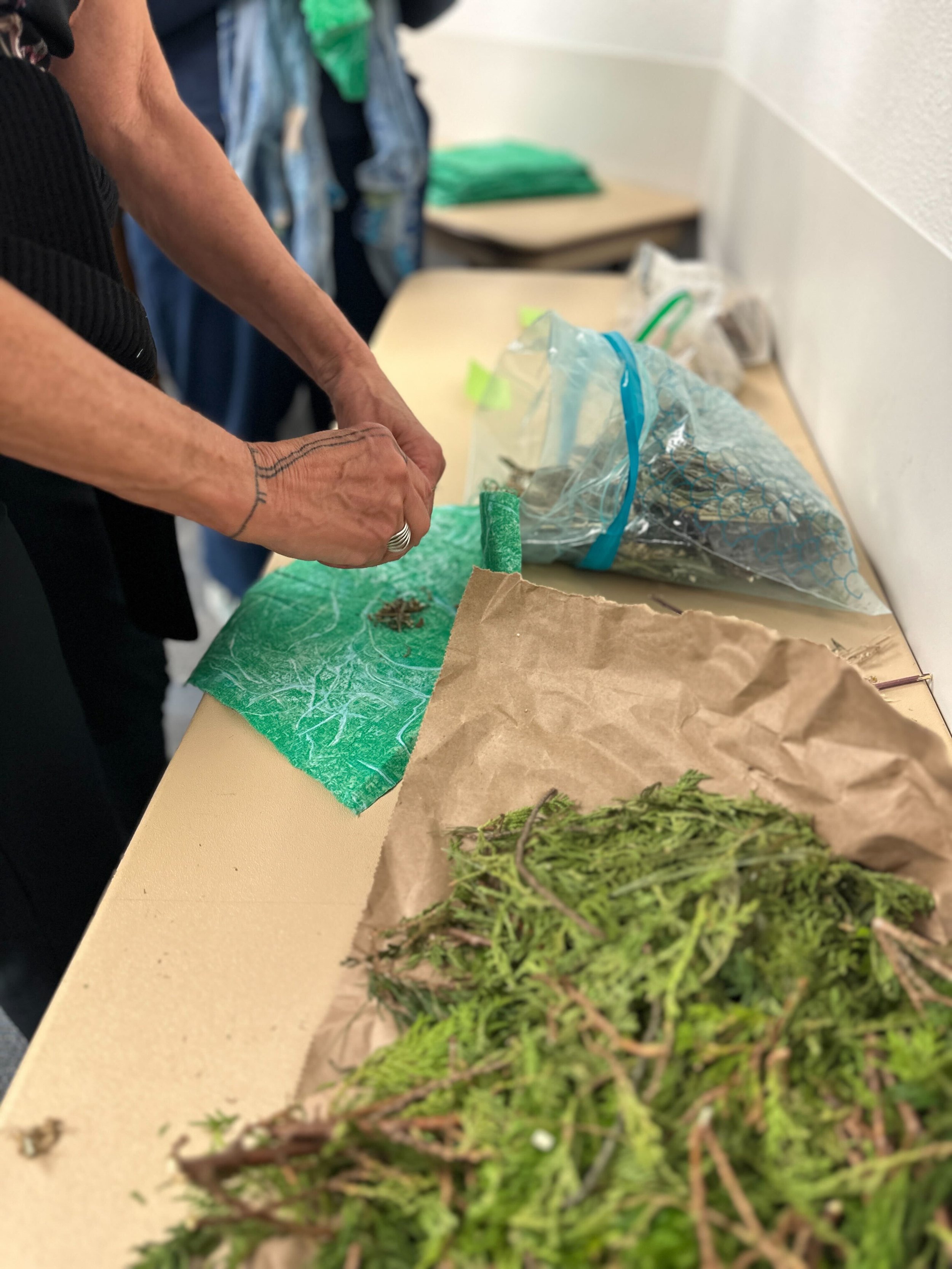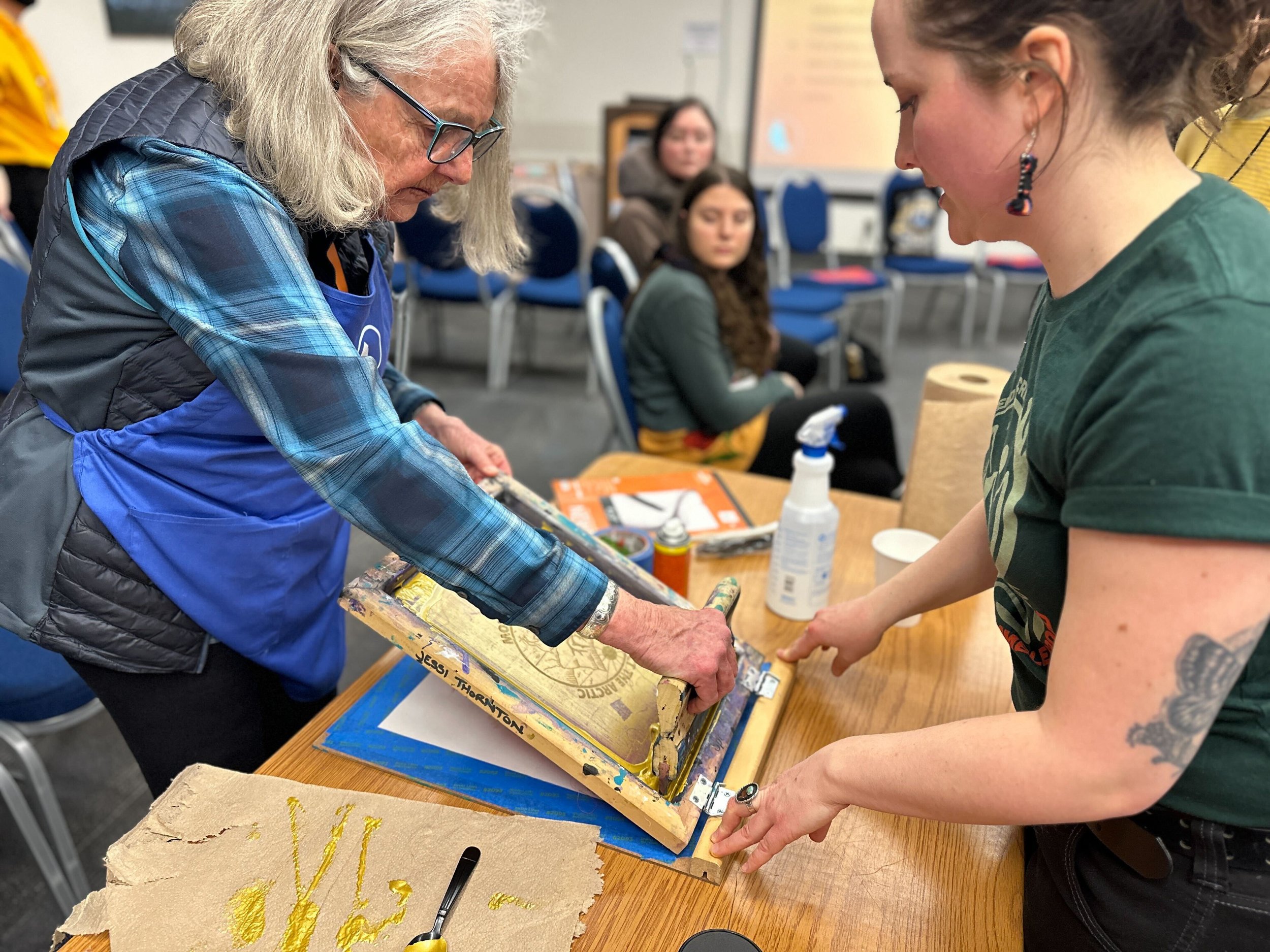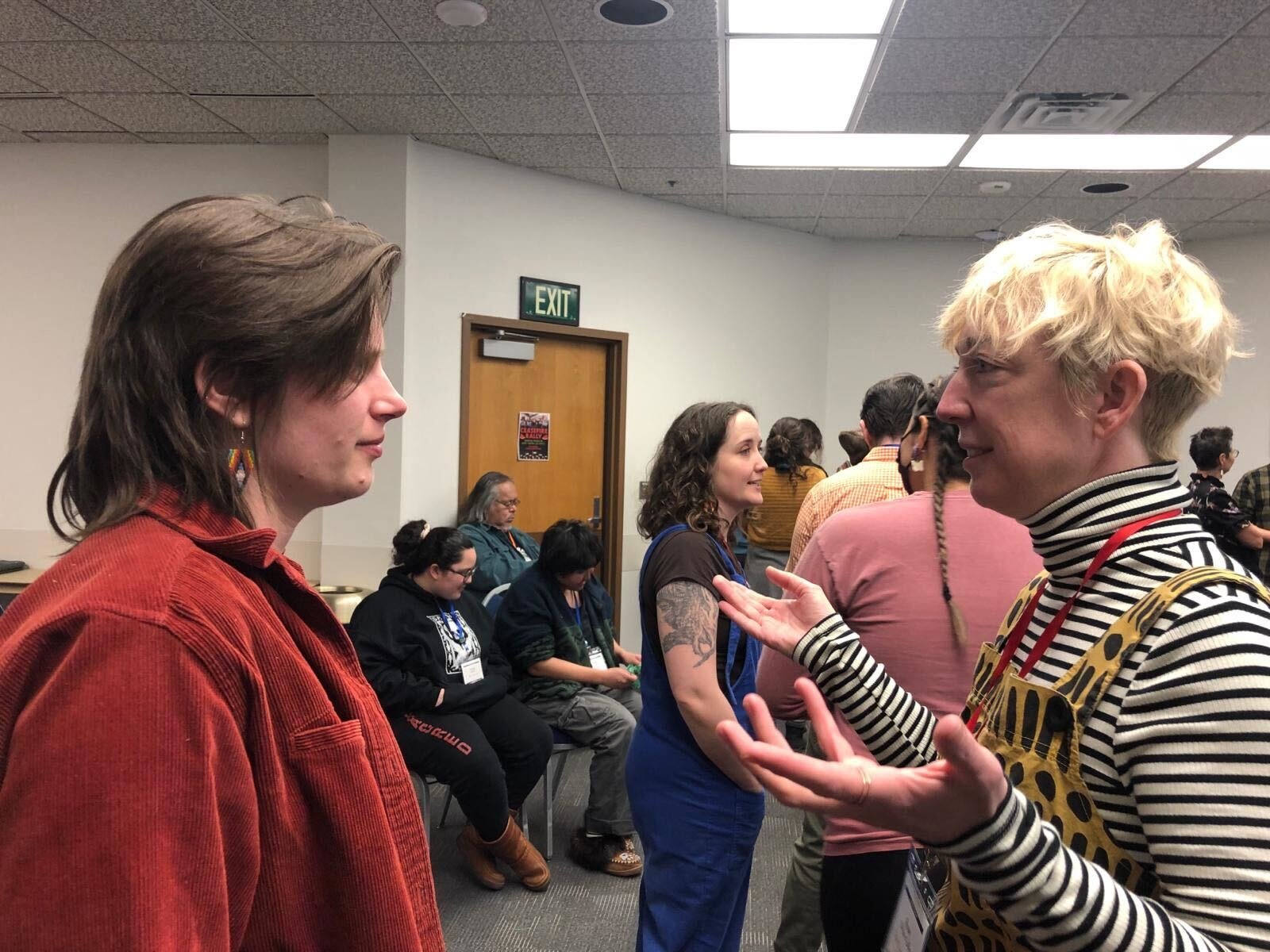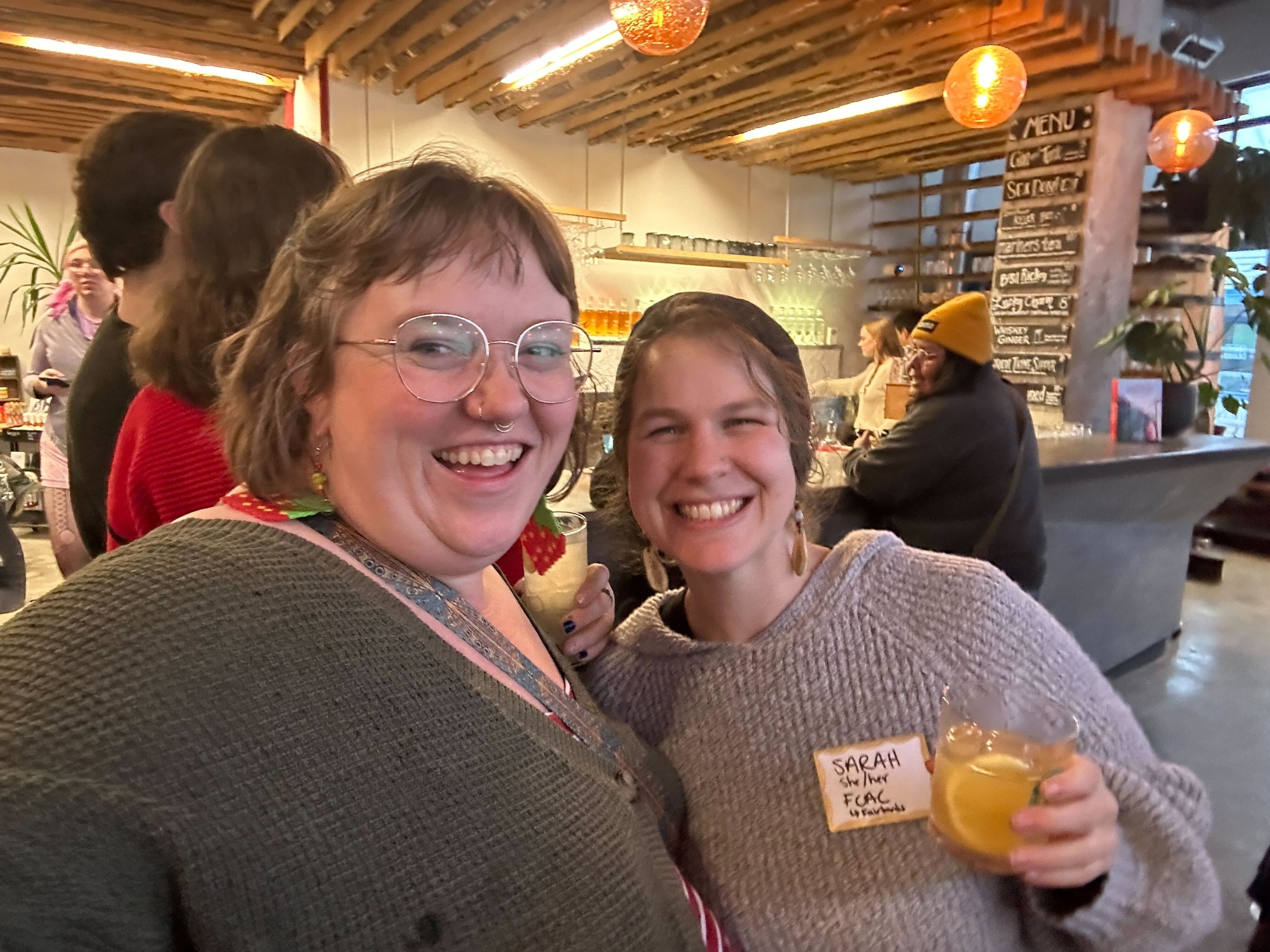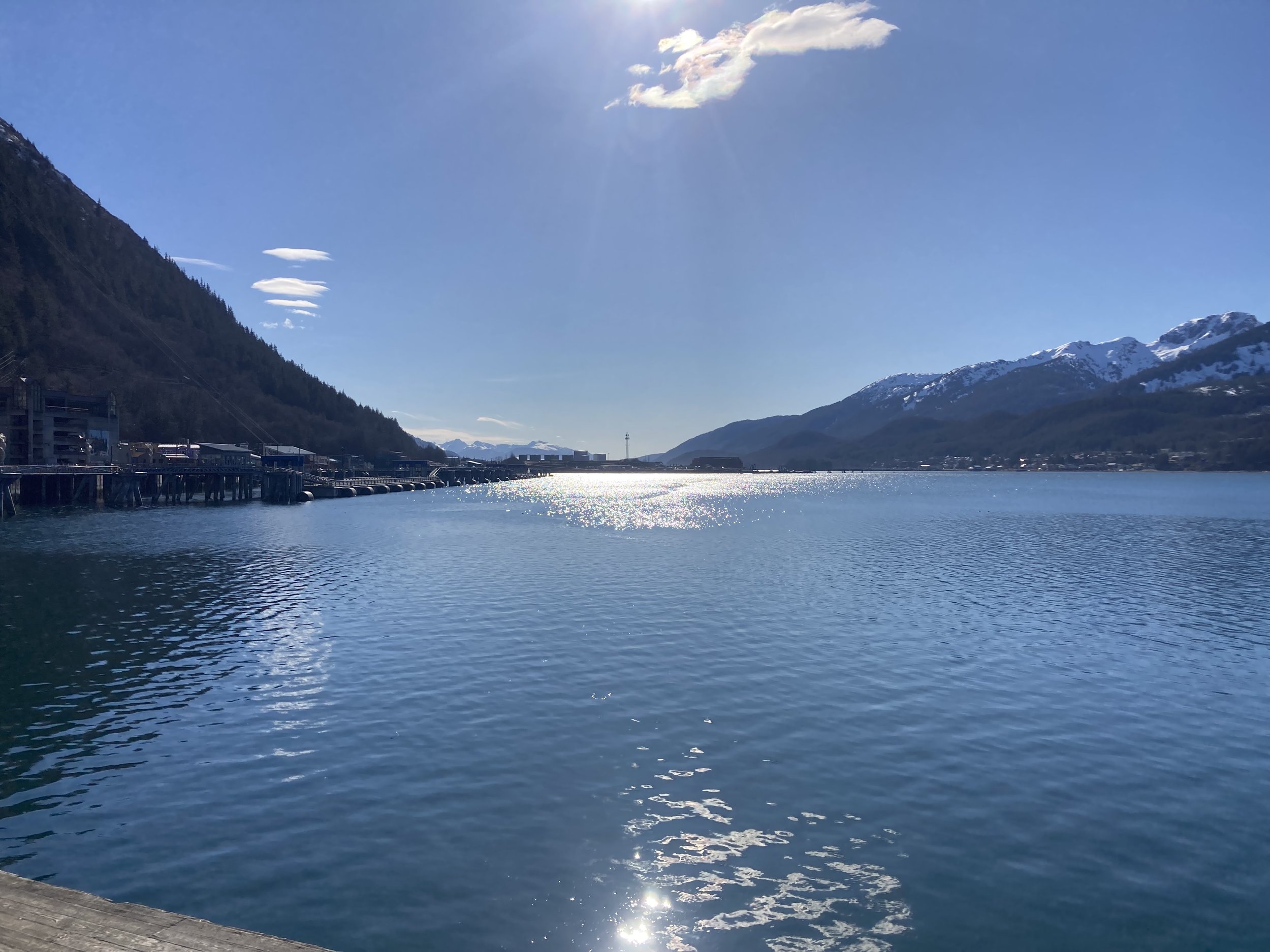Just Transition Summit Reflections
At the end of March, most of our staff and some of our members flew to Juneau for the Just Transition Summit in Á’akw Kwáan territory. This is the third statewide Just Transition Summit, which was started by a group of organizers from across the state who saw a need to come together in order to collaborate, learn from each other, and bring in an Indigenized worldview to the energy transition issues we work on across the movement.
Since the summit, we’ve continued to talk to each other about our learnings and inspirations from that week together, so we wanted to share a few of the themes that have come up repeatedly in our continuing conversations.
One of the biggest takeaways for everyone was the critical importance of our relationships, and how much we gain from building relationships and collaborating across difference.
During the summit, we participated in regional breakout groups, and for many of our Interior folks at least, this was a major highlight, and something we all agreed we want to do more of. In those groups we talked about how we can work together across organizations and communities to meet the immediate needs of people in the Interior as the impacts of climate change worsen.
Throughout the event, the importance of healing in community was emphasized, contrasting with a western view of healing, which is often limited to a therapist’s office. This decolonized view of healing was enriched by many conversations around the importance of hands-on work, language revitalization, and cultural subsistence practices in community healing, and was expanded upon by keynote speaker Richard Peterson, who talked about the limited nature of the idea of “subsistence,” and instead offered a bolder vision of culture beyond just subsisting.
This idea of embracing a bolder vision was a theme that we continued to encounter throughout the summit. It includes broadening our vision of what is politically possible, what is possible in terms of collaboration and conflict, and the importance of building that bold vision into how we operate in our movements.
Every day during the summit, we heard from elders from across the state, and had enriching conversations with youth and elders throughout the summit. One takeaway from many of our participants was around the mutually beneficial relationship between youth and elders. Youth and younger adults spoke about all they learned from the elders present, and elders spoke about the hope they get from watching the passion and power of the youth.
After the official summit was over, we participated in an optional lobby day with our state legislators. For all of us, this was an incredibly empowering experience. We got to see what a hearing was like, how relatively easy it actually is to get a meeting with a legislator, and how much more we often know about the issues that affect us than we think. We saw first-hand how legislators aren’t necessarily experts in all the issues they work on, which shows us how much opportunity we have to educate and influence the people making decisions on the issues we care about.
As we return and digest all we learned from the summit, we look forward to continuing these conversations around healing, a bolder vision of what is possible, and most importantly, how we continue to build strong relationships and work across difference, for the benefit of our community and our movement.
